Deploying a comprehensive intervention package to reduce inappropriate use of antibiotics at district hospitals
Antimicrobial resistance (AMR) is a global public health crisis with many available antibiotics are no longer effective for common infections. Vietnam is a hotspot for the emergence of drug resistant disease. The Vietnamese Government has set AMR as a top health security priority with launching the National Action Plan on Antimicrobial Resistance 2013-2020 for strengthening the control of AMR in the country and enhancing research capacity to address these challenges.
In the hospital setting, according to WHO’s report, up to 50% of antibiotics, mainly broad-spectrum antibiotics, have been inappropriately prescribed. Inappropriate use of antibiotics is not only harmful for patients but also results in development and transmission of antibiotic resistant bacteria. In order to implement the National Action Plan on Antimicrobial Resistance, especially at health care setting, the Ministry of Health issued Decision 5631/QD-BYT in 2020, replacing Decision 772/QD-BYT in 2016, to provide more detailed guidance on management of antibiotic use in hospitals at different levels.
Many district hospitals have not implemented activities specified the Decision due to shortage of trained human resources, limited microbiology lab capacity and lack of detailed guidance on activity implementation.
V-RESIST intervention phase has supported district hospitals in Ha Noi and Ca Mau to implement a comprehensive intervention package to evaluate its effectiveness and cost- effectiveness on reducing inappropriate use of antibiotics in 2021-2022.
AMS committees and teams with hospital leaders and key clinical doctors and pharmacists have been established and played their critical roles in implementing AMS activities at the hospitals.
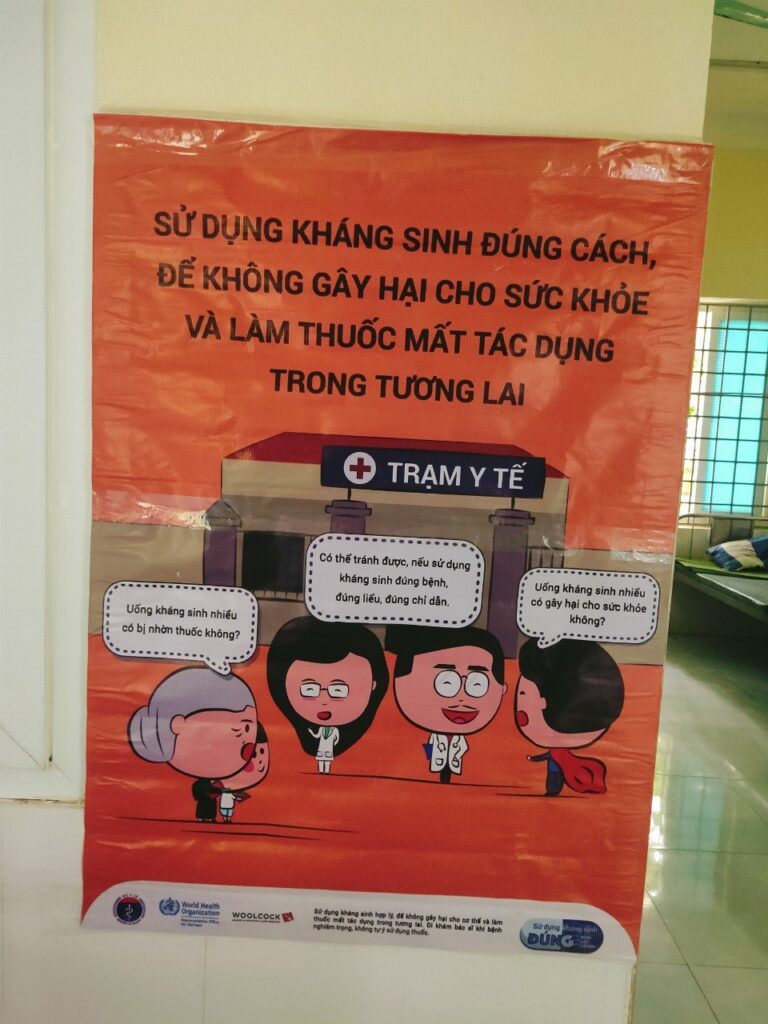
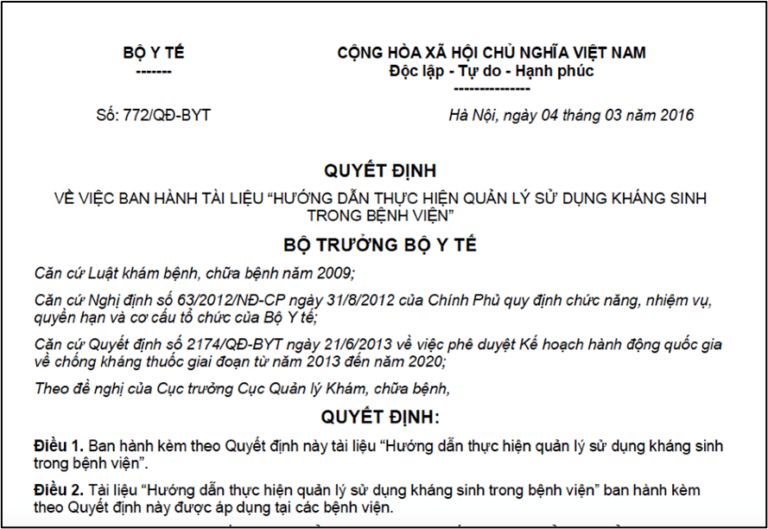
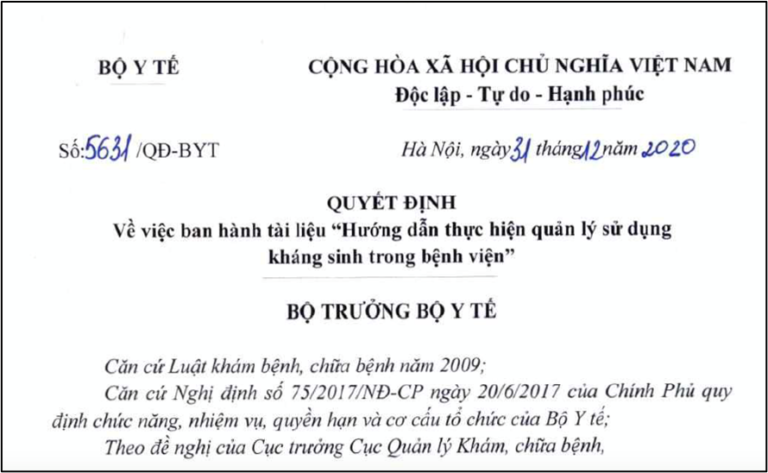
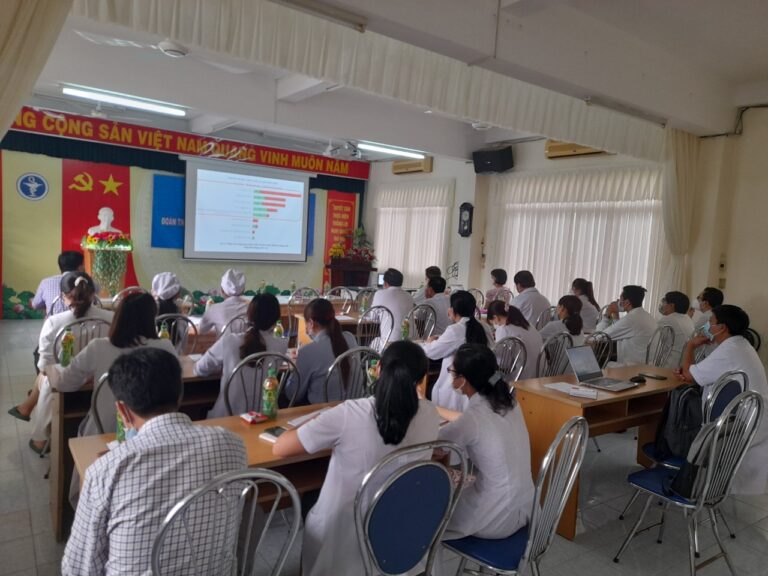
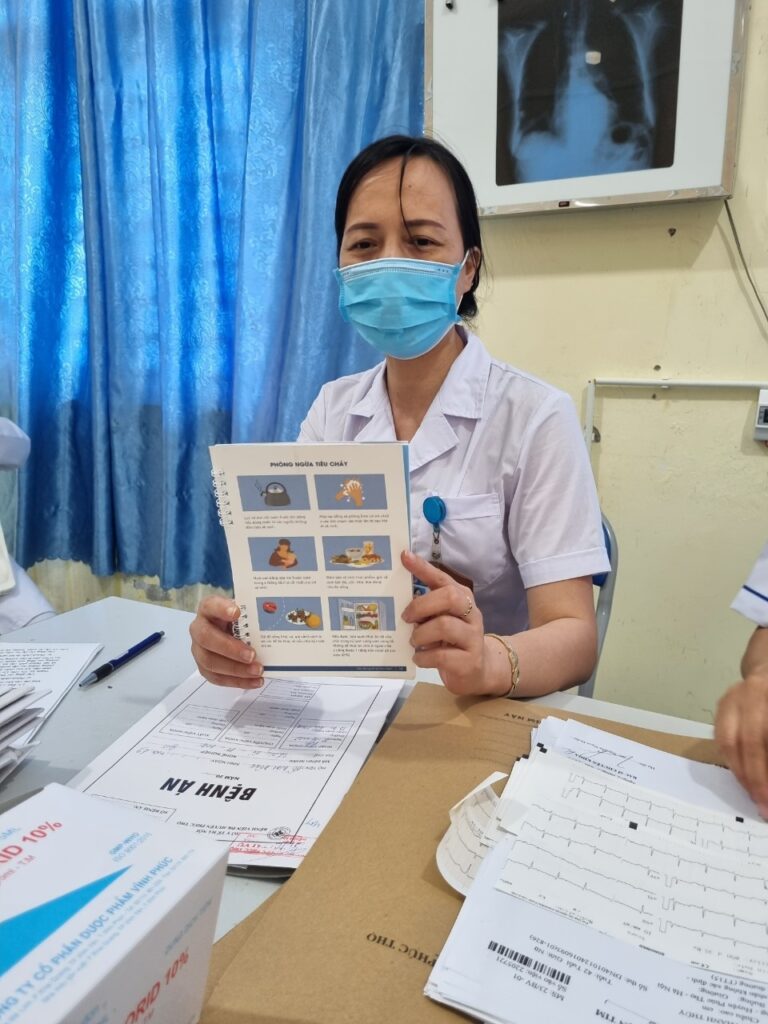
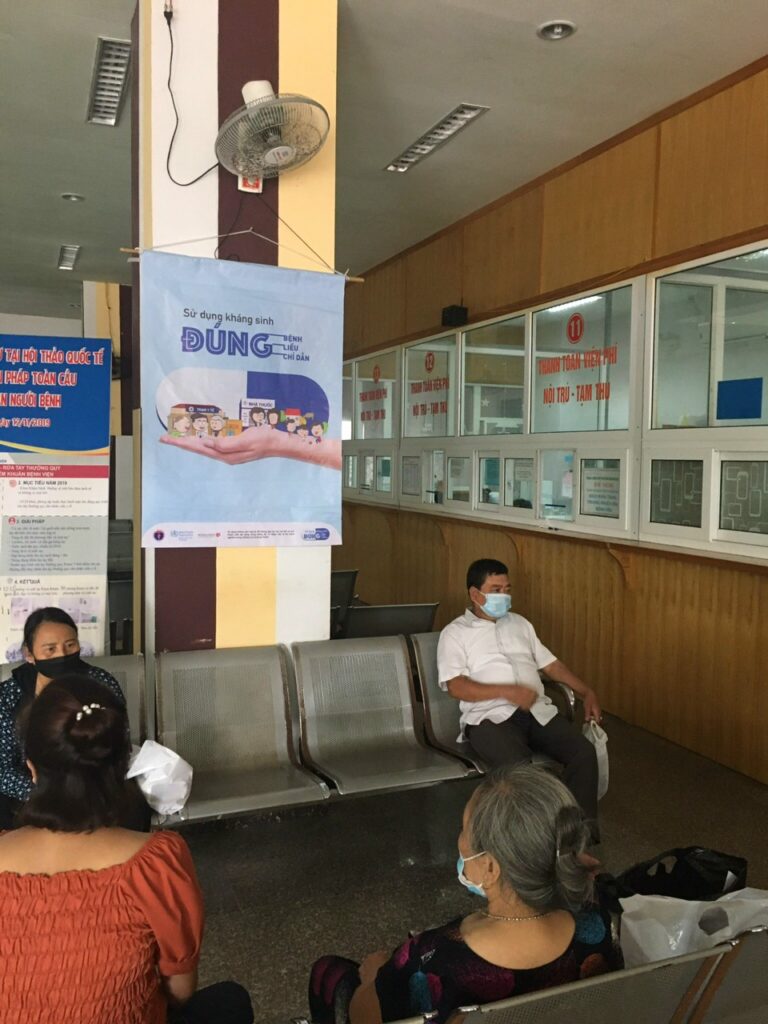
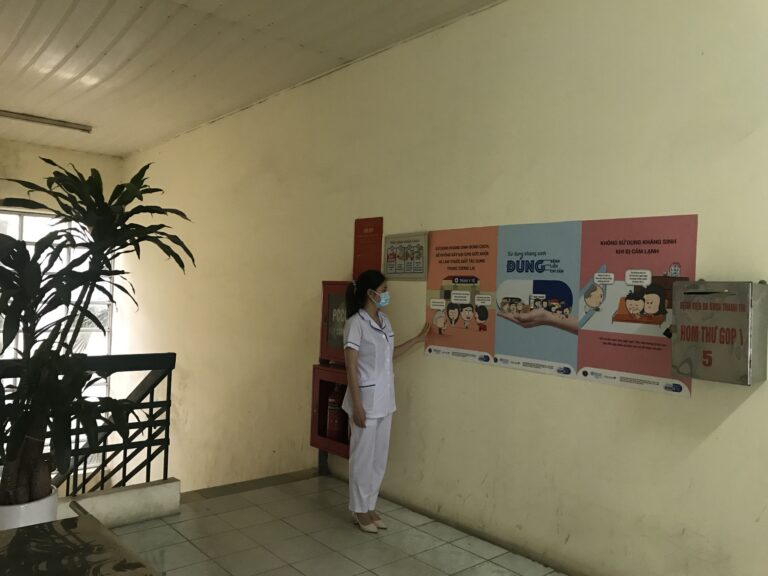
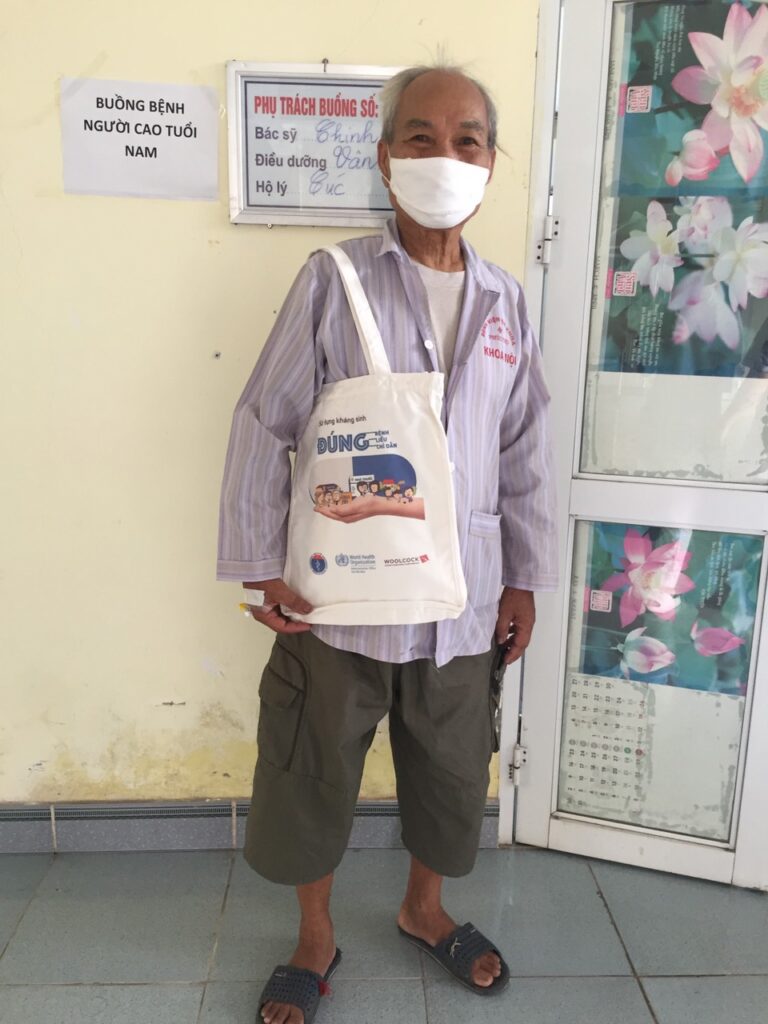
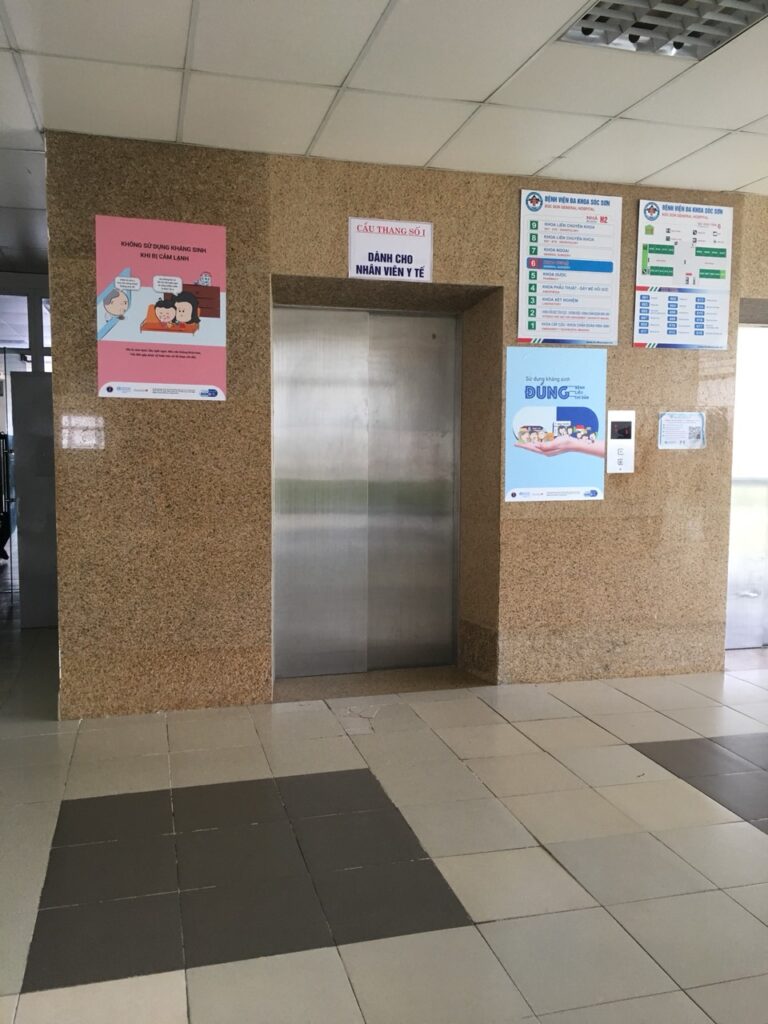
The AMS committees chaired review and introduction of treatment guidelines for common viral and bacterial infections with hospital doctors and pharmacists. On-going training on the treatment guidelines and routine review, feedback, and discussion of individual antibiotic prescriptions for in-patients between national experts and hospital doctors and pharmacists to practically hand-on knowledge and experience on appropriate use of antibiotics for common infections with review of real individual cases at the hospitals. Community awareness on appropriate use of antibiotics has been also enhanced by dissemination of health promotion messages and materials from healthcare staff to patients and their families.

